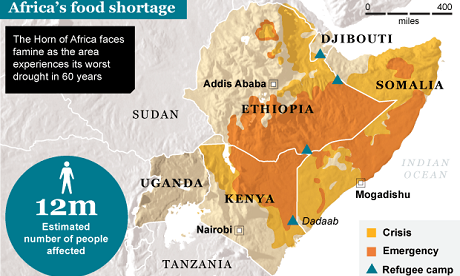Food insecurity, violence and climate change are forcing Africa into a corner.
The continent is facing a looming food crisis caused by Russia’s invasion of Ukraine.
In better times, between 2018 and 2020, Africa imported 44 percent of its wheat from Russia and Ukraine.
“A striking phenomenon is the link between food insecurity, violence and climate change,” says Secretary General of Caritas Internationalis, Aloysius John.
“They are interlinked. When people find themselves in extreme conditions and highly vulnerable, survival becomes the motivation for any kind of activities and often ends in violence and conflict.”
The situation is worst in the Horn of Africa and the arid Sahel region, John says.
“In the Sahel region, more than 12.7 million people are exposed to a highly vulnerable situation of hunger as well as exile from their rural homesteads,” he says.
Caritas – a confederation of Catholic relief and development agencies – is concerned about Africa’s reliance on food imports.
“Africa has been the dumping site for the surplus of large-scale industrial production of food,” says John.
“It’s destroyed food supply chains and local traditional farming – and needs immediate and quick attention.”
Of the 160 million people living on the Horn of Africa, 45 percent will be affected by food insecurity, he says.
The formerly “fertile land of the Nile” is worst affected by severe drought and scarce rainfall.
Violence and conflict in the region compound the problem.
One percent of the land is irrigated. It’s “totally insufficient” to feed the population.
People are on the move.
They and their livestock have been forced to leave their traditional homelands in search of humanitarian aid or any means to sustain their survival.
“A recent Caritas report calls for “the implementation of just food systems – from production to consumption” as “key for the development of global South nations”.
Food injustice has been meted out in different forms, John says.
Traditional agriculture has been destroyed and replaced by vested interests. Market-oriented, large-scale agriculture is suffering today due to climate change and droughts, he says.
In some parts of Africa, cheap industrially-raised imported chicken, milk and meat are endangering locally raised produce.
Restoring justice to the global food systems means stopping using Africa as a dumping site.
Promoting and socialising local communities to water harvesting, natural fertilisers and pest control is also vital.
The Ukraine-Russia war shows how the global South needs to take ownership of its own food chains, John says.
“It is important to develop local agriculture, traditional farming, identify local food habits and mainstream them into development projects.
“A community-oriented and community-based development paradigm which takes integral ecology into account needs to be developed.
“This will help promote local food systems and supply chains leading to food independence,” he says.
Source
Additional readingNews category: World.




